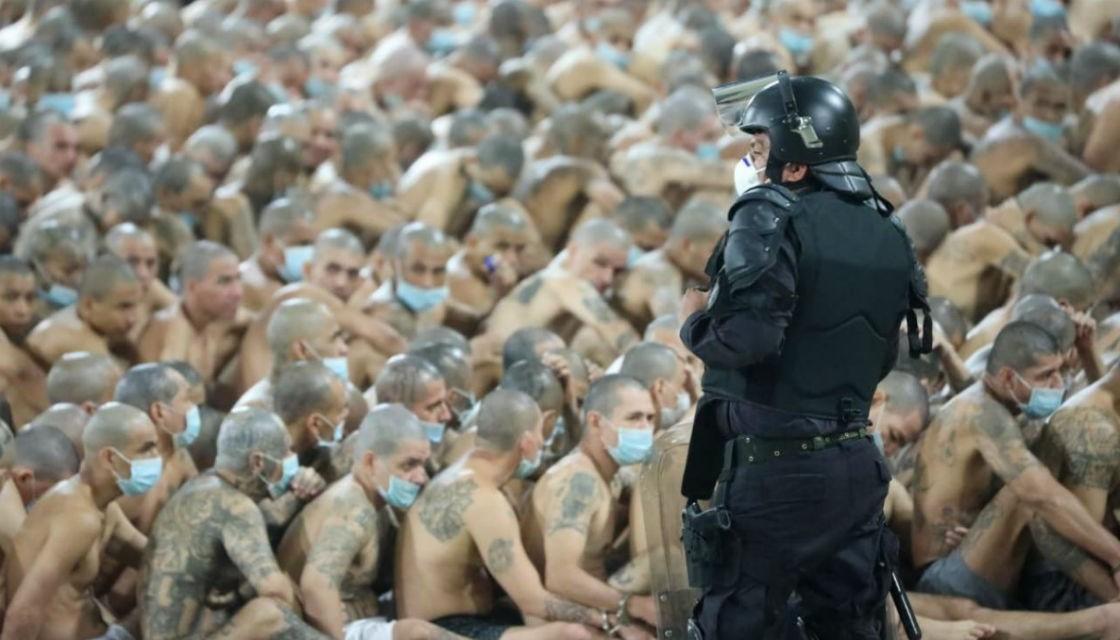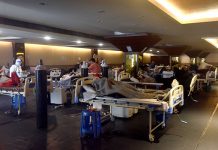Latin America is known to have some of the world’s most heavily populated and crowded jails and it is in jails such as these that social distancing is an altogether impossible proposition.
In the jails of El Salvador, prisoners are crammed into tiny prison cells and while one tiny cell is shared by over two dozen inmates, social distancing seems like a remote possibility.
What adds to the dangers of contagion are a lack of medical facilities and the inability of the authorities to deal with the crisis that seems to be looming large over this heavily crowded part of the world.
Looking at the grave situation, even the United Nations has stepped in and urged the government to make sure that inmates are protected and those who are more vulnerable to infection are temporarily released so that the issues of overcrowding and density can be tackled to some extent.
It is in this context that countries such as Chile, Colombia and Nicaragua have announced their decisions of moving thousands of jail inmates or prisoners into house arrest. This list included inmates who may be more vulnerable to infections such as pregnant women, the elderly or those having underlying conditions. Brazil has already started the process of moving inmates into house arrest and Peru has plans to give vulnerable inmates some relaxations due to the coronavirus pandemic.
But what is surprising is that despite having the world’s highest per capita prison population after the US, EL Salvador has not taken even a single step to ensure prison safety in the context of the coronavirus pandemic. El Salvador has been a country which has been struggling with the problems of gang violence for decades and its prisons are bursting at the seams.
El Salvador is a country which is also known to have the largest per capita murder rate in the world. The country has adopted some stringent rules and mechanisms to address violence inside the jails too between members of opposing gangs and these include a total cut off from the world outside, no access to technology or other amenities, no visitors and 24/7 confinement in stringent conditions.
Moreover, in-jail programs have been introduced to enable prisoners to pick up key skills that may help them fetch employment when they are freed from the prison. One of the fears that the government of the country faces is that 80% of the crimes that happen in the outside world are ordered and organised from inside the prisons and thus they are apprehensive about releasing the prisoners because doing so may escalate violence and associated gang wars.
But the non-flexibility of releasing prisoners also brings about a host of problems and overcrowding is only one of them.
With mass crowding in prisons and vulnerability to infection, these prison cells could soon become coronavirus hotspots. This is all the more worrying because there is high prevalence of respiratory diseases in the prison and tuberculosis is one among the most commonly occurring ailments within the prison.
Given the fact that the coronavirus infection and tuberculosis spread in the same way, authorities are scrambling to prepare for what experts see as a time bomb waiting to explode. El Salvador’s prions have the capacity to take 18,051 prisoners but currently the system holds 38,000 inmates. What adds to the problems inside the prison cells are extreme heat, unhygienic conditions, lack of sanitation and vulnerability to diseases such as tuberculosis and over the years, many inmates have lost their lives owing to the pathological state of the prison cells. Thus the coronavirus pandemic presents an unprecedented and massive crisis for the country and for the thousands of inmates who are living in these prison cells.
Thus the country is presently facing a strange dilemma: should it release a large number of its prisoners temporarily to reduce over-crowing in the cells or should it continue to keep them inside the jails because releasing them may increase risks of gang violence and unrest? In the absence of timely measures is the country making itself increasingly vulnerable to the coronavirus pandemic?














